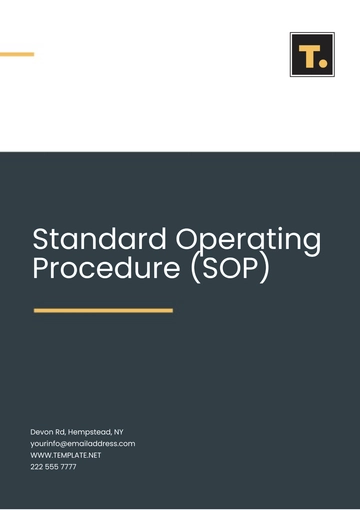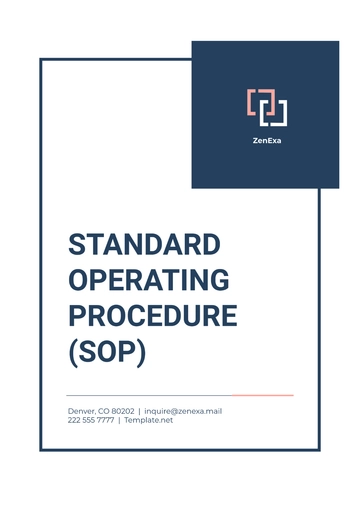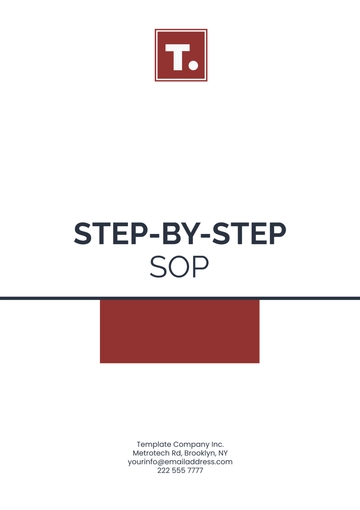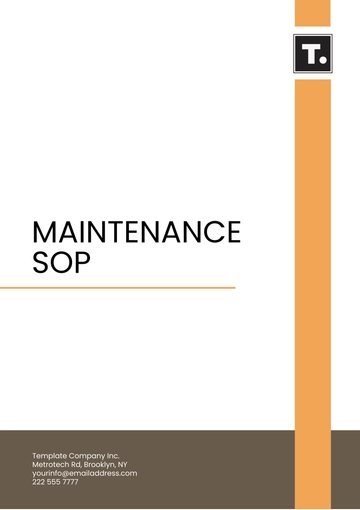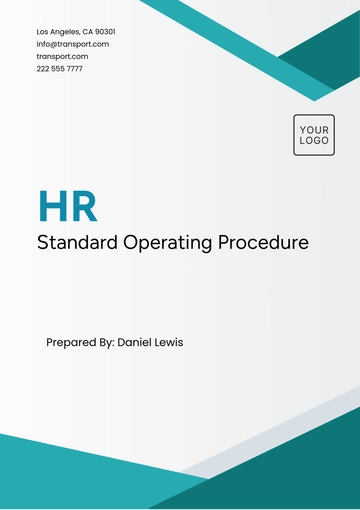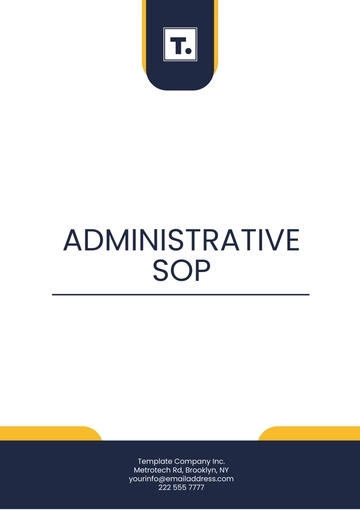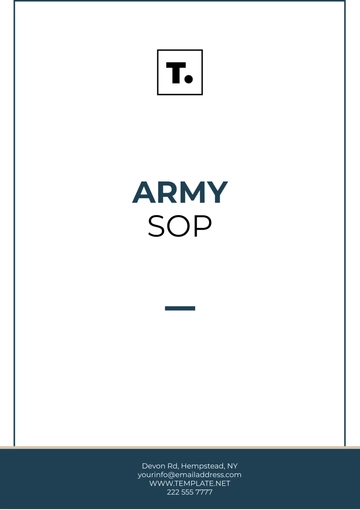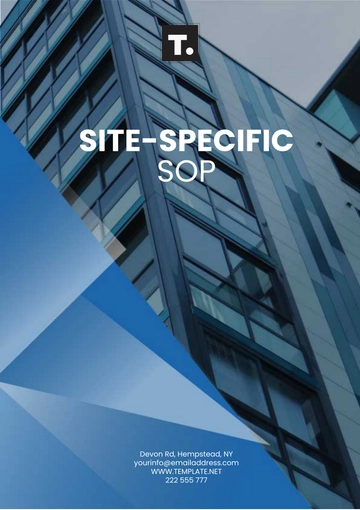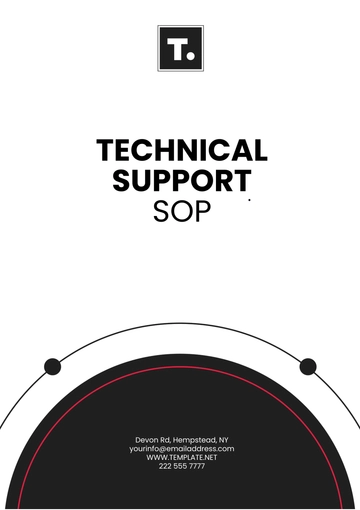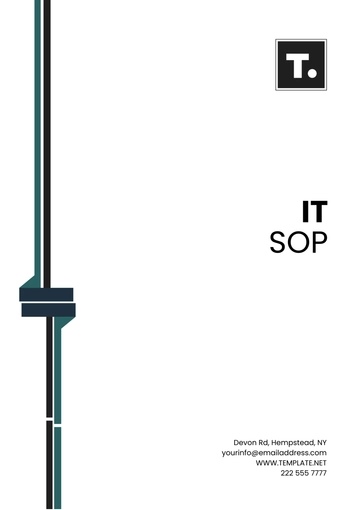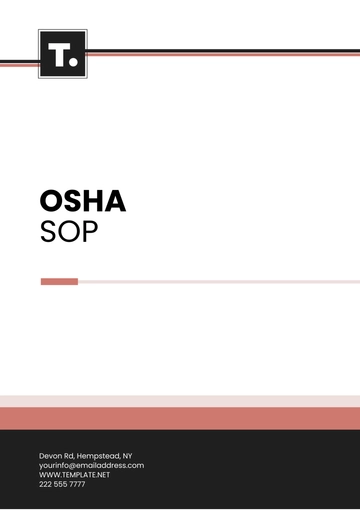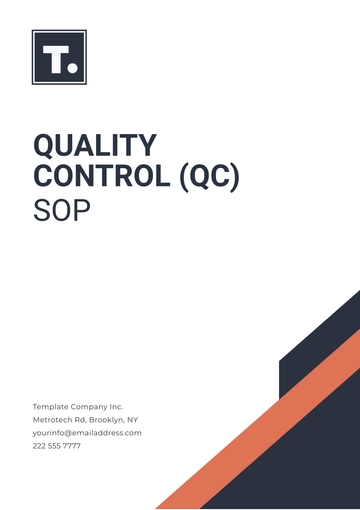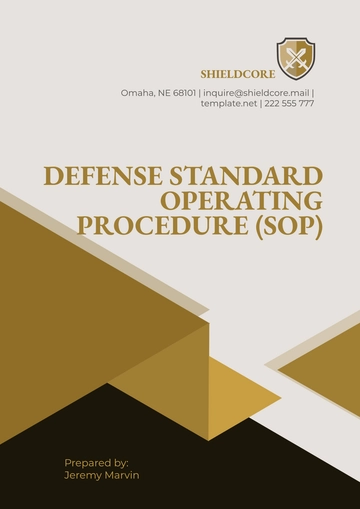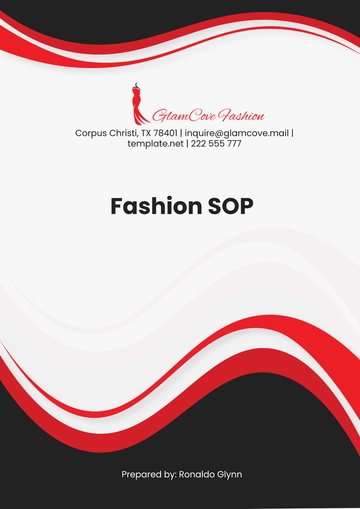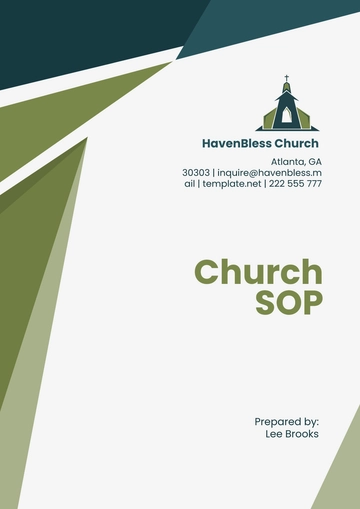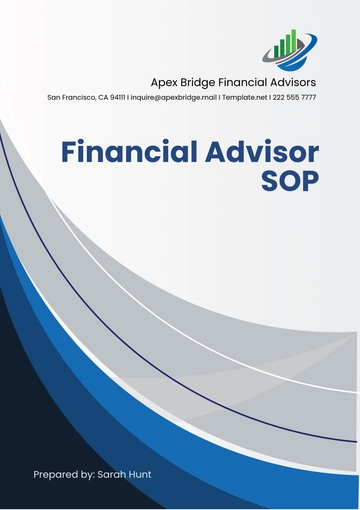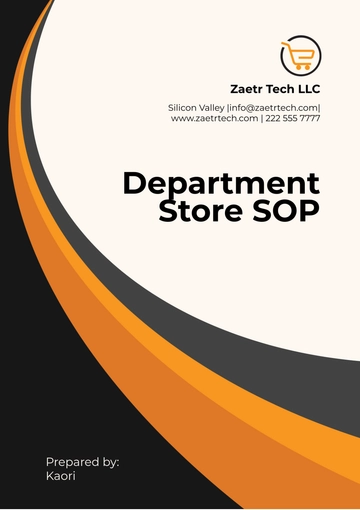Free Nursing Home Finance SOP
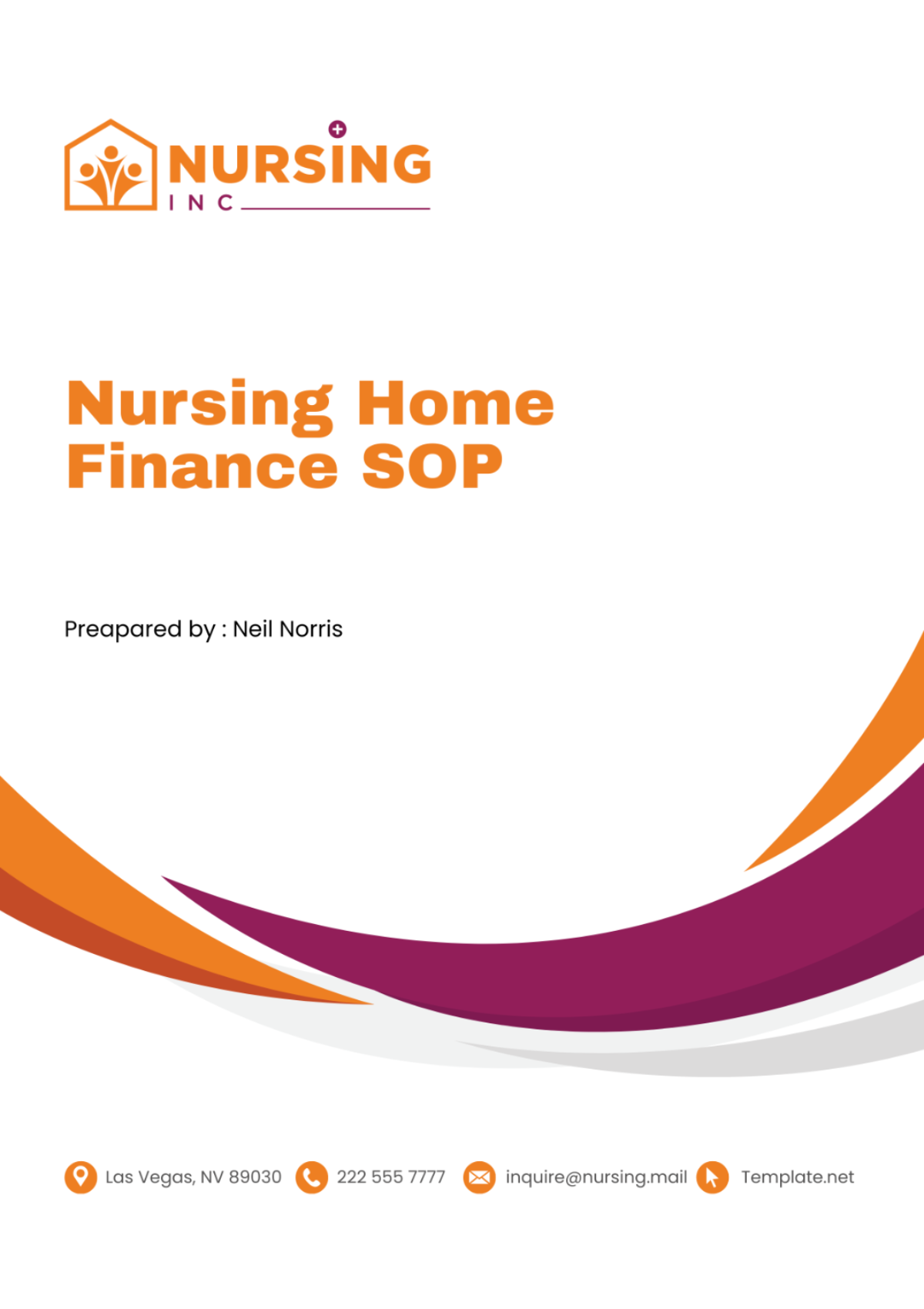
I. Introduction
The Nursing Home Finance Standard Operating Procedure (SOP) outlines the procedures and guidelines for managing financial operations within [Your Company Name], a nursing home facility. Effective financial management is essential for ensuring the provision of quality care to residents while maintaining the facility's financial stability and compliance with regulatory requirements.
II. Objective
The primary objective of this SOP is to establish clear policies and procedures for all financial activities within the nursing home, including budgeting, billing, expense management, and compliance. By adhering to these guidelines, [Your Company Name] aims to optimize revenue and expense management, ensure regulatory compliance, and promote transparency and accountability in financial operations.
III. Responsibilities
Management: The management team is responsible for overseeing overall financial management within the nursing home, including budget planning, financial reporting, and compliance with regulatory requirements.
Finance Department: The finance department is responsible for day-to-day financial operations, including billing, accounts receivable management, expense tracking, and financial reporting.
Department Heads: Department heads are responsible for monitoring departmental budgets, ensuring adherence to spending guidelines, and providing necessary financial information to support decision-making within their respective departments.
Staff Members: All staff members are responsible for adhering to established financial policies and procedures, accurately documenting financial transactions, and promptly reporting any concerns or discrepancies to the appropriate authorities.
IV. Procedures
A. Budgeting
Annual Budget Preparation: The finance department, in collaboration with department heads, will prepare an annual budget outlining revenue projections, expense estimates, and budget allocations for each department. The budget will be reviewed and approved by senior management before implementation.
Budget Monitoring and Reporting: Throughout the fiscal year, department heads will monitor budget performance against actual expenses, identifying any variances and implementing corrective actions as needed. The finance department will generate regular budget variance reports for review by senior management.
B. Billing and Revenue Cycle Management
Resident Billing: The finance department will generate accurate and timely bills for resident services, ensuring that charges are properly documented and communicated to residents and their families.
Third-Party Billing: The finance department will verify insurance coverage for residents with third-party payers, such as Medicare or private insurance companies, and submit claims for reimbursement in accordance with applicable regulations and guidelines.
Private Pay Billing: For residents who are self-paying, the finance department will establish payment plans and ensure timely collection of payments in accordance with established policies.
Accounts Receivable Management: The finance department will monitor accounts receivable aging reports, follow up on outstanding balances, and implement collection procedures as necessary to minimize bad debt and optimize cash flow.
C. Expense Management
Procurement Process: All purchases will be made in accordance with established procurement policies and procedures, including obtaining competitive bids, obtaining necessary approvals, and maintaining appropriate documentation.
Expense Authorization: All expenses must be authorized in accordance with established spending guidelines and approval thresholds. Any deviations from approved budgets must be justified and documented.
Expense Tracking and Reporting: The finance department will maintain accurate records of all expenses incurred by the nursing home, categorizing expenses by department and expense type. Regular expense reports will be generated and reviewed by senior management.
D. Financial Reporting
Monthly Financial Statements: The finance department will prepare monthly financial statements, including income statements, balance sheets, and cash flow statements, for review by senior management.
Quarterly and Annual Reports: In addition to monthly financial statements, the finance department will prepare quarterly and annual financial reports summarizing financial performance, budget variances, and key financial metrics.
Regulatory Reporting: The finance department will ensure timely submission of required financial reports to regulatory agencies, such as Medicare and Medicaid, in accordance with applicable regulations and guidelines.
E. Compliance and Regulatory Requirements
Regulatory Compliance Review: The finance department will conduct regular reviews to ensure compliance with all relevant regulations and guidelines governing nursing home financial operations.
Internal Audits: Internal audits will be conducted periodically to assess compliance with established financial policies and procedures and identify areas for improvement or corrective action.
Staff Training: All staff members involved in financial activities will receive training on relevant regulations and guidelines to ensure compliance in their day-to-day activities.
V. Documentation and Recordkeeping
Documenting Financial Transactions:
All financial transactions, including resident billing, accounts receivable, expense payments, and revenue collections, will be accurately documented in the facility's accounting system.
Documentation will include details such as transaction date, description, amount, and relevant account codes to ensure proper classification and tracking of financial activities.
Recording Financial Transactions:
Financial transactions will be recorded promptly and accurately in accordance with generally accepted accounting principles (GAAP) and regulatory requirements.
Recording will be performed by designated personnel with appropriate training and expertise to ensure consistency and accuracy in financial reporting.
Retention of Financial Records:
Financial records, including invoices, receipts, billing statements, and supporting documentation, will be retained for the appropriate retention period as specified by regulatory agencies and internal policies.
Records will be stored securely in electronic or physical format to prevent loss, damage, or unauthorized access.
Access Controls:
Access to financial records will be restricted to authorized personnel only, including finance department staff and management personnel responsible for financial oversight.
Access controls will be implemented to limit access based on job responsibilities and the principle of least privilege, ensuring that employees only have access to the information necessary to perform their duties.
Data Integrity and Security:
Measures will be implemented to ensure the integrity and security of financial data, including encryption, password protection, and regular data backups.
Security protocols will be established to protect against unauthorized access, data breaches, and other cybersecurity threats.
Audit Trails:
Audit trails will be maintained to track changes to financial records, including modifications, deletions, and additions, along with details of the user responsible for each action.
Audit trails will be reviewed regularly to detect and investigate any unauthorized or suspicious activities.
Disposal of Records:
At the end of the retention period, financial records will be disposed of securely in accordance with established policies and procedures.
Disposal methods may include shredding, incineration, or electronic deletion to ensure that sensitive information is irreversibly destroyed and cannot be reconstructed.
VI. Training and Communication
Training Programs:
Regular training programs will be conducted for all staff members involved in financial activities to ensure a comprehensive understanding of the policies and procedures outlined in this SOP.
Training sessions will cover topics such as billing processes, expense management, regulatory compliance, and documentation requirements, tailored to the specific roles and responsibilities of staff members.
Continuing Education:
Staff members will have access to continuing education opportunities to stay updated on changes in regulations, industry best practices, and emerging trends in nursing home finance.
Continuing education may include seminars, workshops, webinars, or online courses relevant to financial management and healthcare administration.
On-the-Job Training:
On-the-job training will be provided to new staff members to familiarize them with the facility's financial systems, processes, and procedures.
Experienced staff members will serve as mentors or trainers to provide guidance and support during the onboarding process.
VII. Monitoring and Review
The effectiveness of financial policies and procedures outlined in this SOP will be monitored through regular audits and reviews conducted by the finance department or designated internal auditors.
Audits and reviews will assess compliance with established policies, identify areas for improvement, and ensure the accuracy and integrity of financial data.
Financial performance will be analyzed regularly to evaluate key metrics such as revenue generation, expense management, cash flow, and profitability.
Variances from budgeted targets will be investigated, and corrective actions will be implemented as necessary to address any deviations and improve financial performance.
Internal controls will be evaluated periodically to ensure their effectiveness in safeguarding assets, preventing fraud, and maintaining the integrity of financial operations.
Control deficiencies will be identified and remediated through process improvements, additional training, or enhancements to existing control measures.
Compliance with regulatory requirements, industry standards, and internal policies will be monitored closely to mitigate compliance risks and ensure adherence to applicable laws and regulations.
Any instances of non-compliance will be addressed promptly through corrective action plans and measures to prevent recurrence.
Quality assurance reviews will be conducted to assess the accuracy, completeness, and timeliness of financial reporting and documentation. Reviews may include sampling of financial transactions, reconciliation of accounts, and validation of data integrity to ensure the reliability of financial information.
Staff members involved in financial activities will undergo periodic performance evaluations to assess their competency, productivity, and adherence to established policies and procedures.
VIII. Glossary of Terms
Definitions of key terms and acronyms used throughout the SOP are provided for clarity and understanding. These key terms are as follows:
Accounts Receivable: Amounts owed to the nursing home for services provided to residents or third-party payers, typically recorded as assets on the balance sheet until collected.
Budget Variance: The difference between actual financial performance and budgeted targets, indicating deviations from planned revenue or expenses.
Compliance: Adherence to laws, regulations, industry standards, and internal policies governing financial operations and reporting.
Expense Authorization: Approval process for expenses incurred by the nursing home, ensuring compliance with spending guidelines and budgetary limits.
Financial Reporting: Preparation and dissemination of financial statements, including income statements, balance sheets, and cash flow statements, to stakeholders.
Internal Controls: Policies, procedures, and safeguards implemented to protect assets, prevent fraud, and ensure the accuracy and integrity of financial data.
Procurement Process: Procedures for acquiring goods and services needed by the nursing home, including requisition, purchasing, and vendor selection.
Regulatory Compliance: Conformity with laws, regulations, and regulatory requirements applicable to nursing home financial operations, such as Medicare and Medicaid guidelines.
Revenue Cycle Management: Processes for billing, collecting, and managing revenue generated from resident services and third-party payers.
Training and Development: Programs and initiatives aimed at enhancing staff members' knowledge, skills, and competencies related to financial management and compliance.
Variance Analysis: Examination of differences between planned and actual financial performance to identify reasons for deviations and inform decision-making.
- 100% Customizable, free editor
- Access 1 Million+ Templates, photo’s & graphics
- Download or share as a template
- Click and replace photos, graphics, text, backgrounds
- Resize, crop, AI write & more
- Access advanced editor
Standardize financial procedures in nursing homes with Template.net's Nursing Home Finance SOP Template. Customizable in our AI Editor Tool, this easily editable template provides a structured format for documenting standard operating procedures (SOPs) related to financial management, including budgeting, accounting, billing, purchasing, and reporting. Enhance efficiency, ensure consistency, and maintain compliance effortlessly with Template.net!
